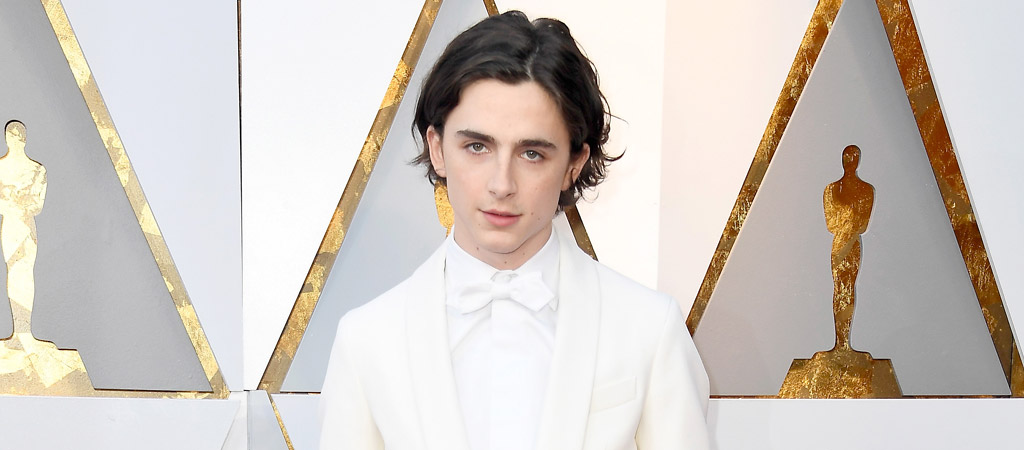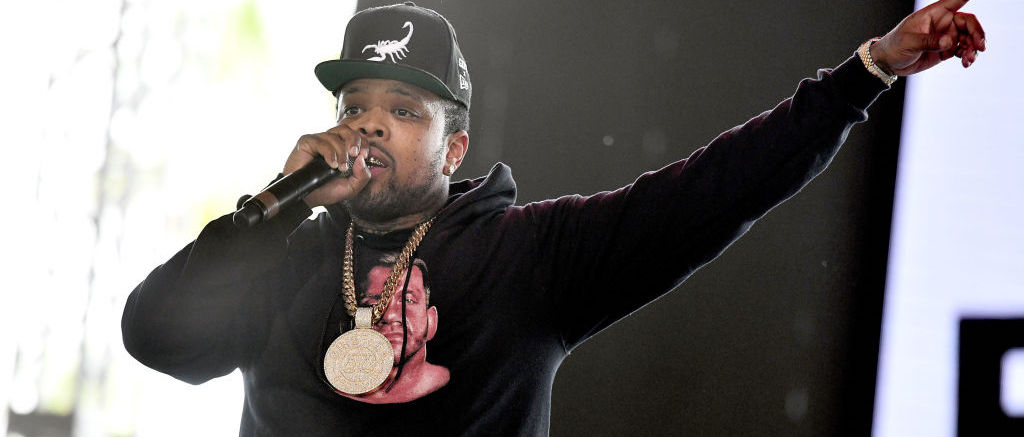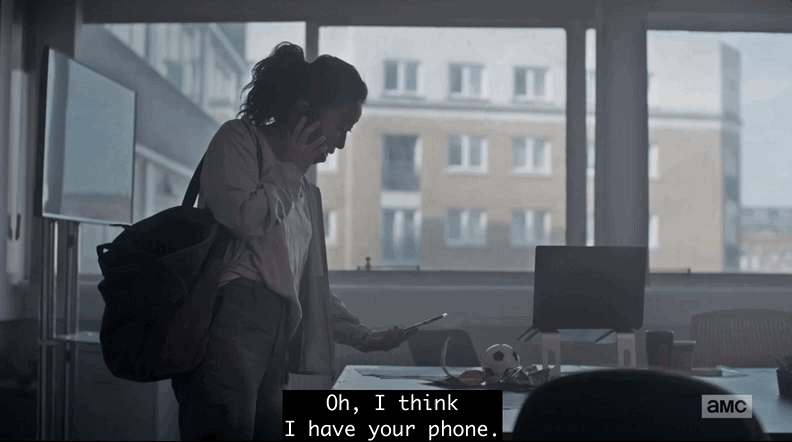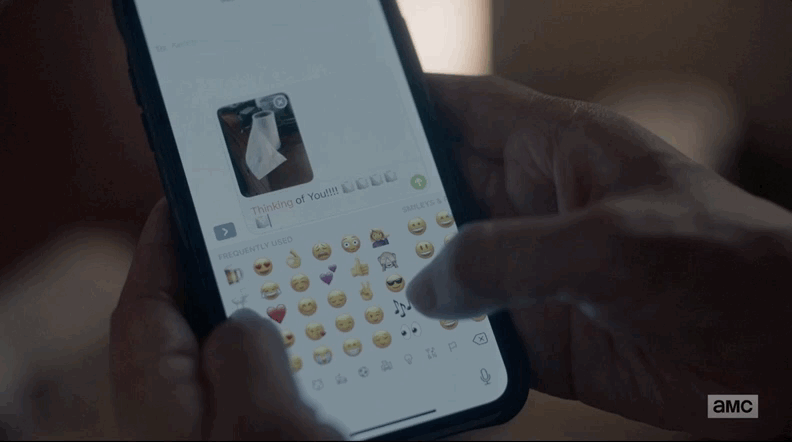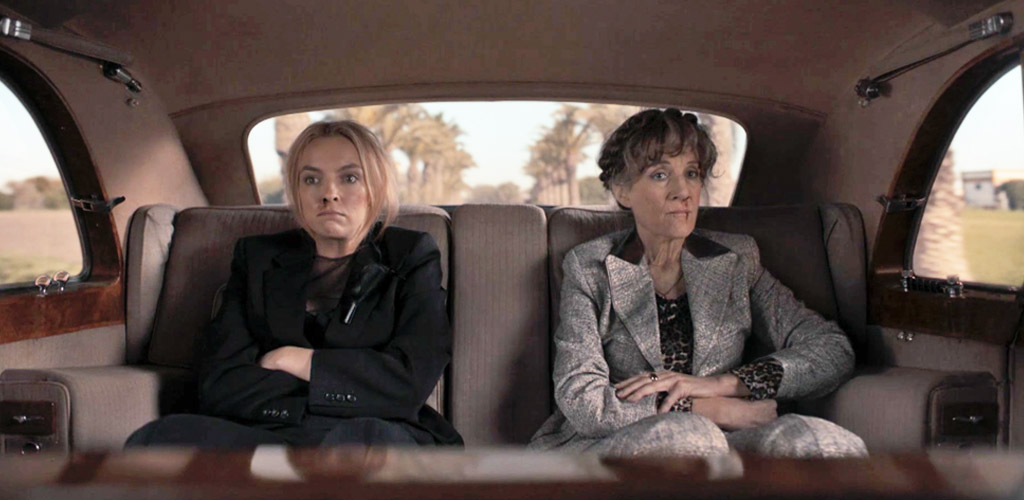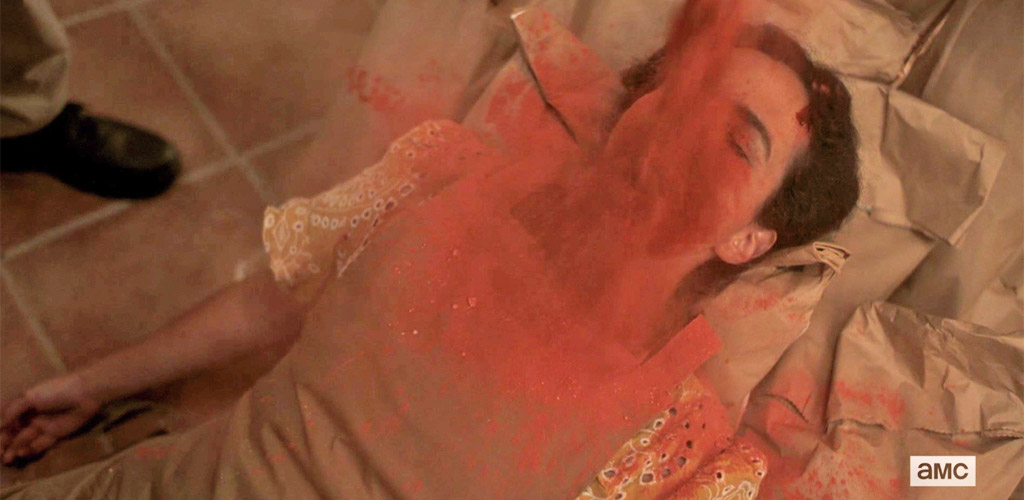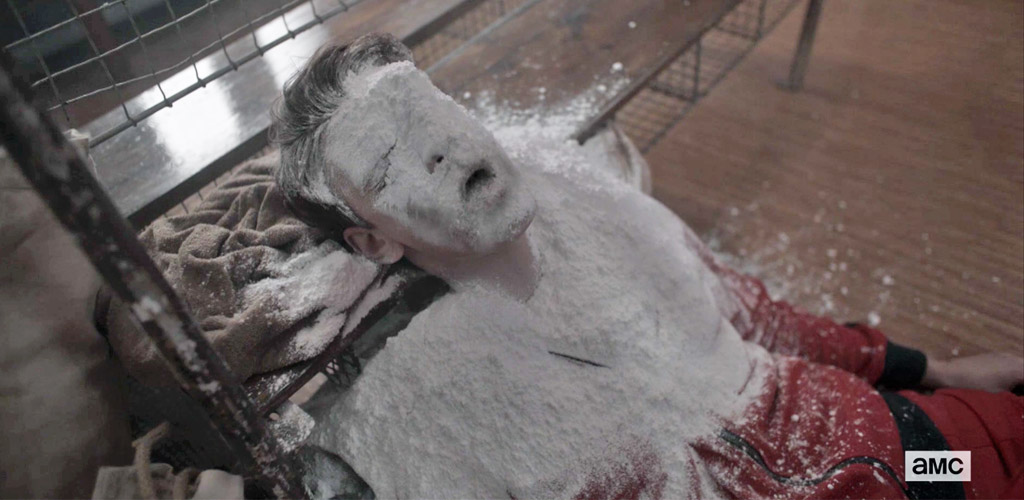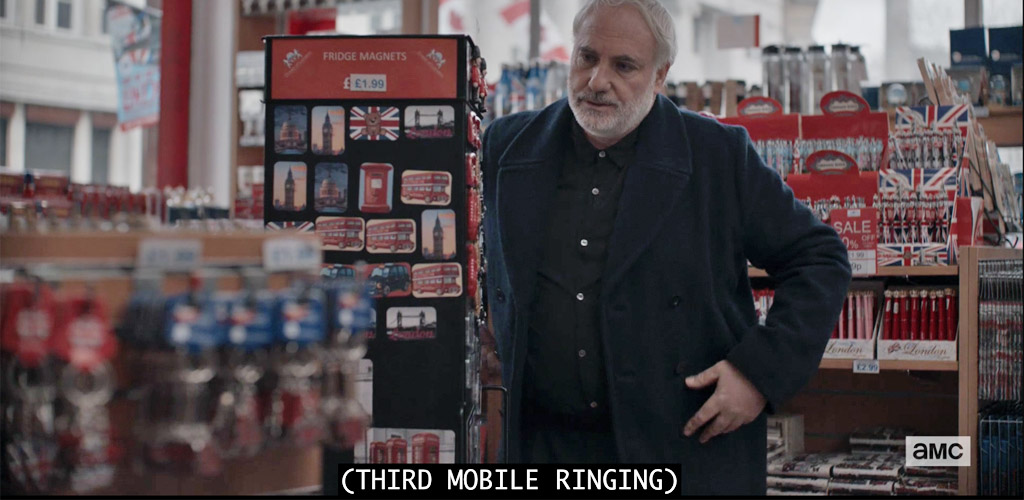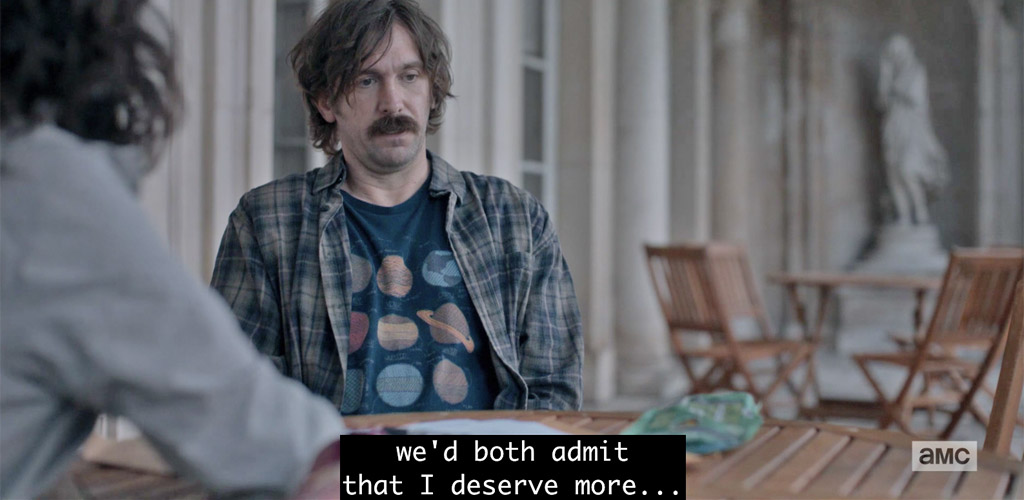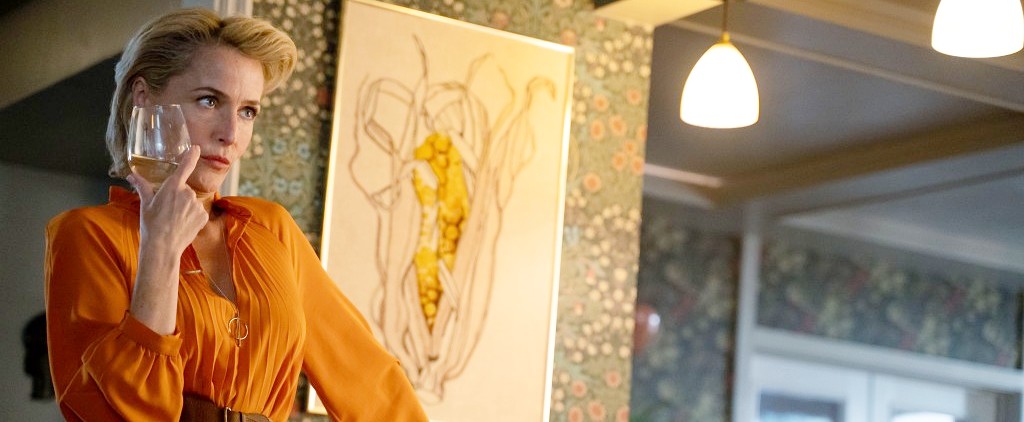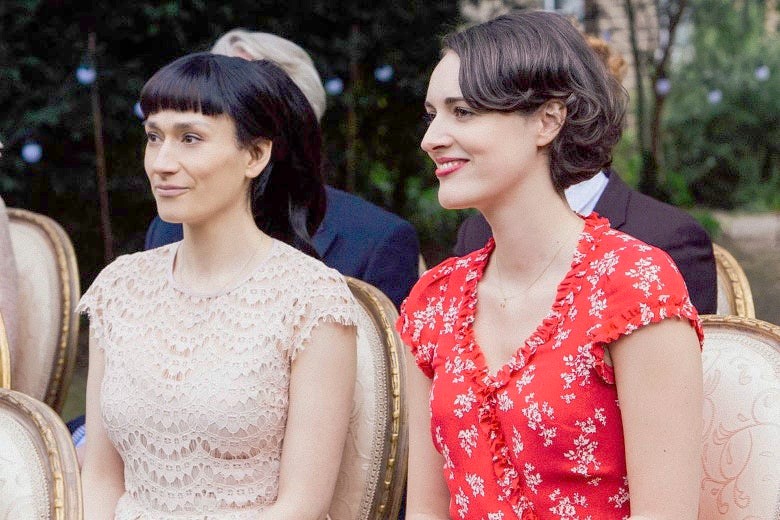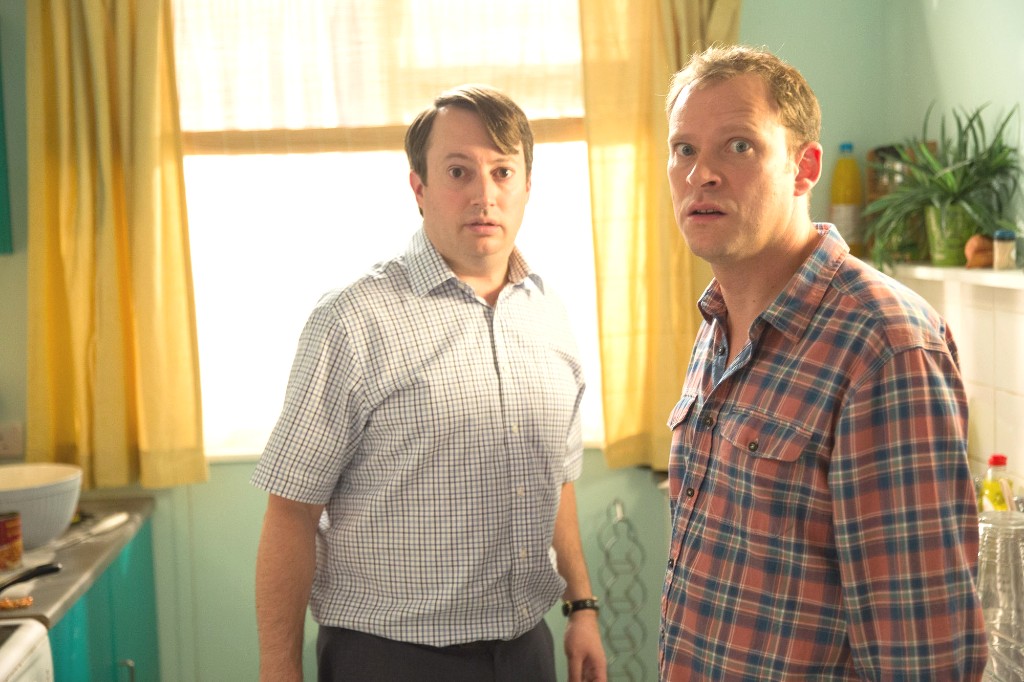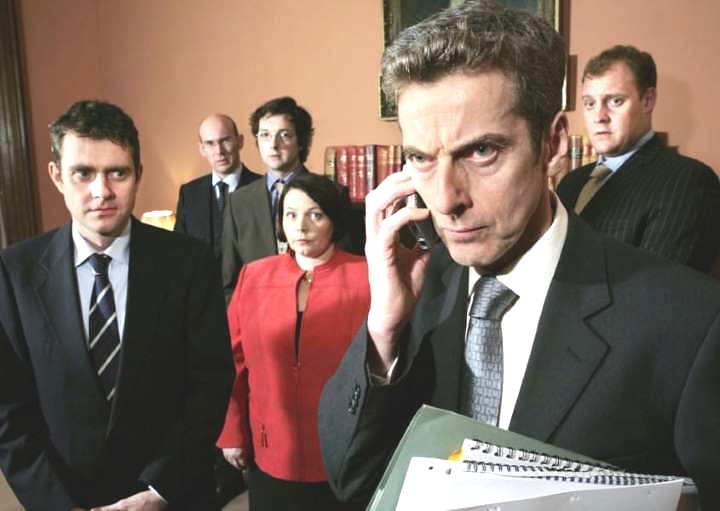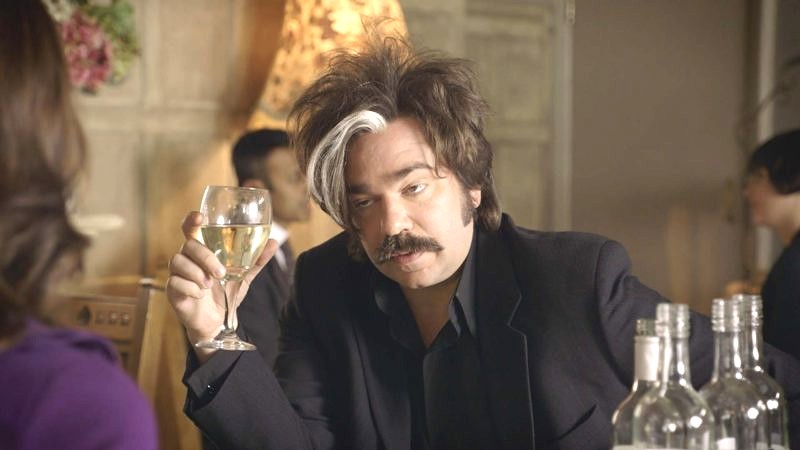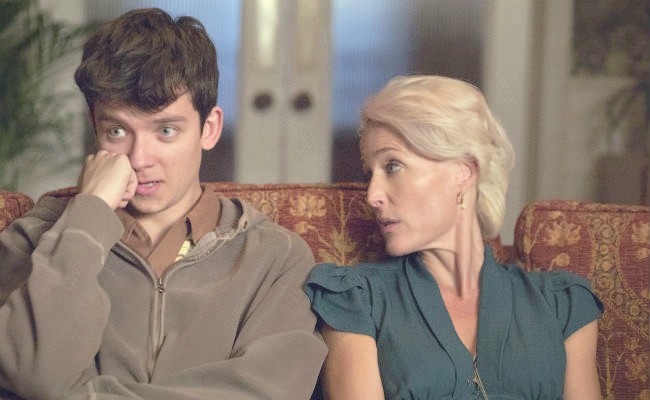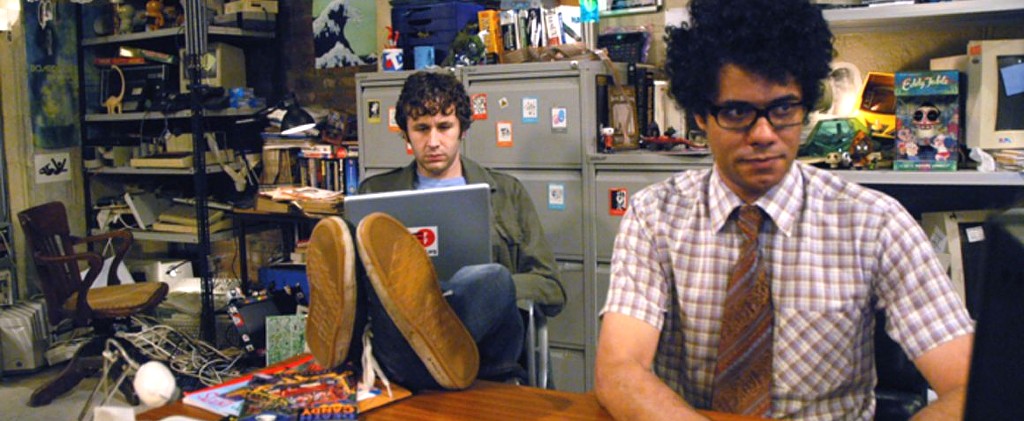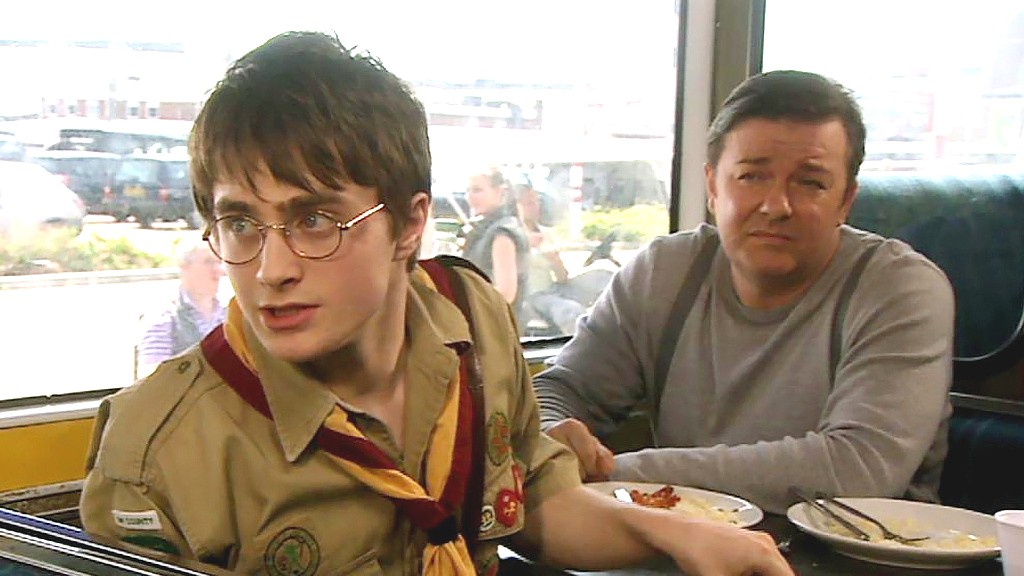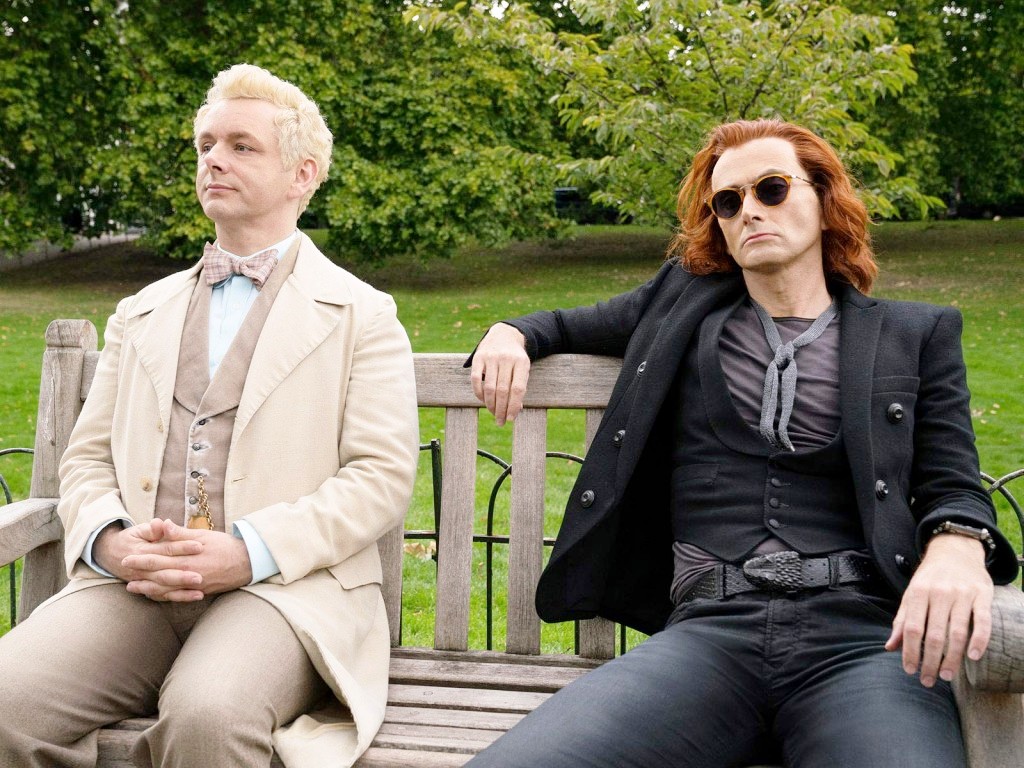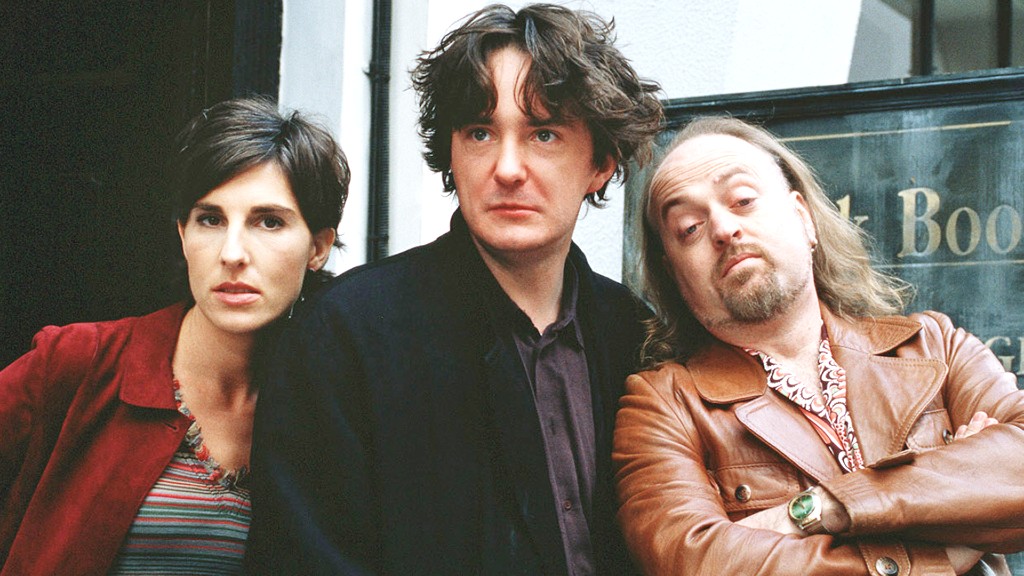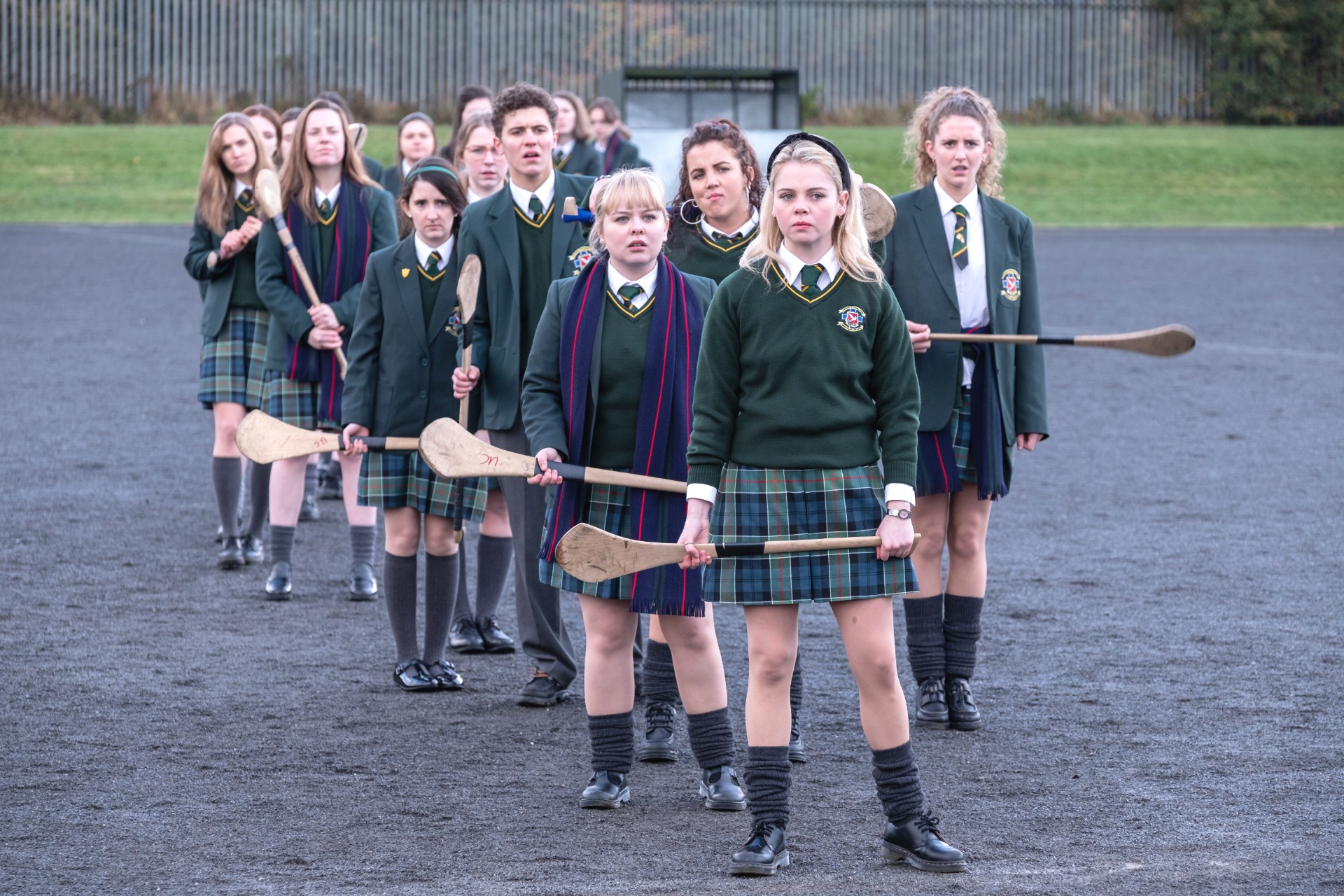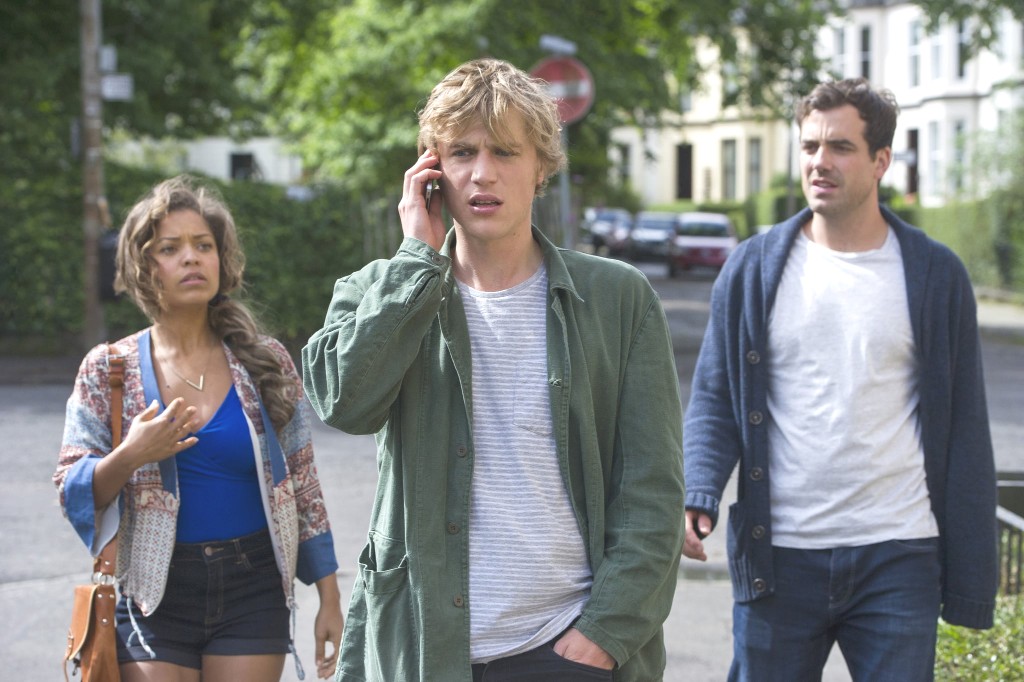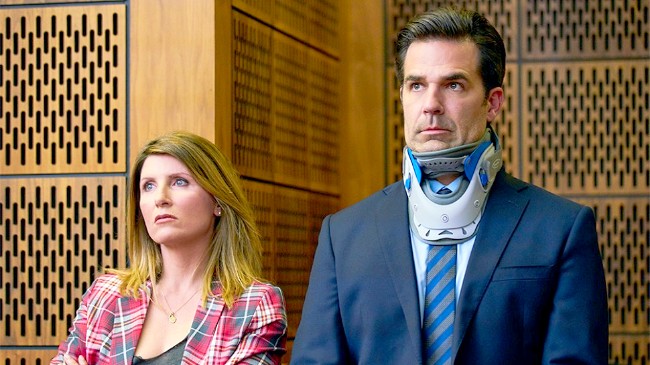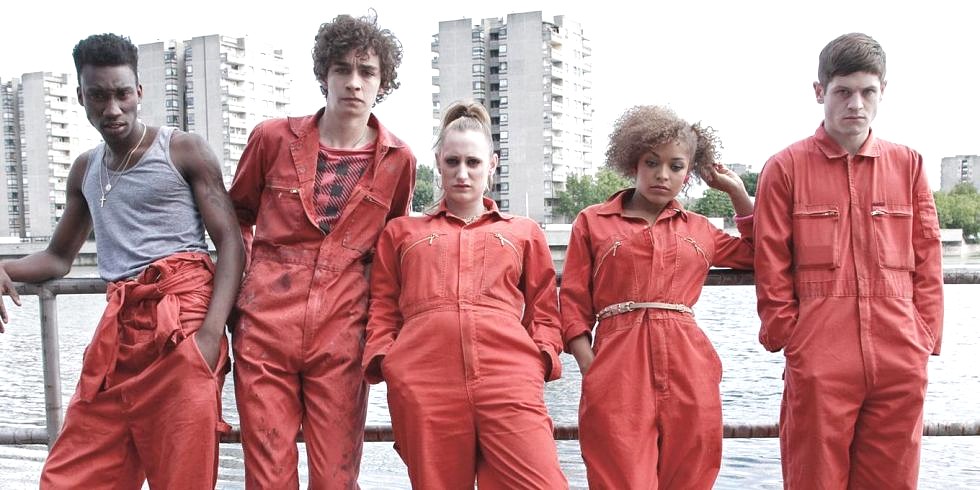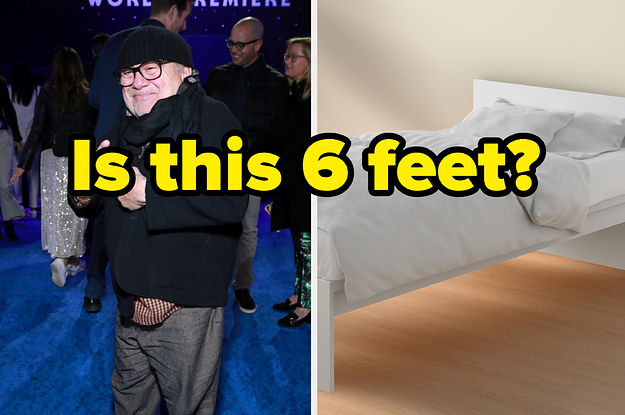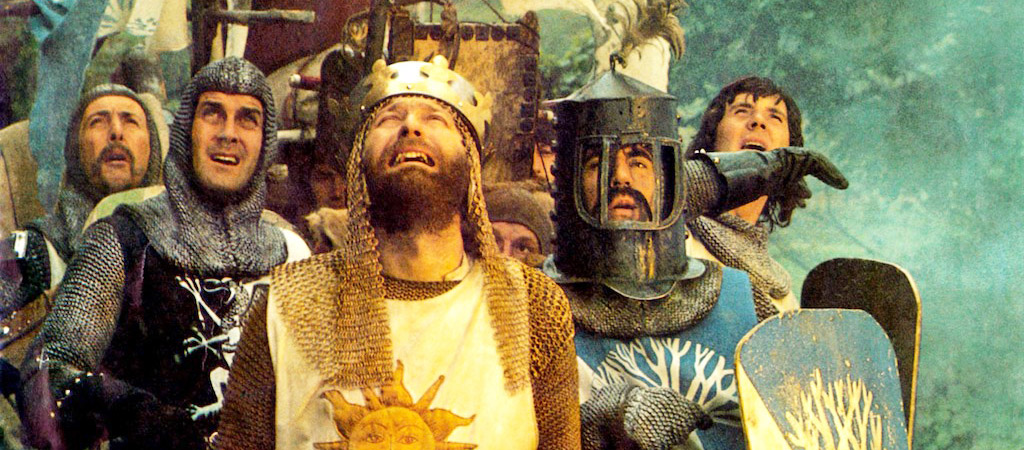
There’s the “Ni!”-spouting nerds on the “Homer Goes to College” episode of The Simpsons. There’s years of Mystery Science Theater 3000 using Monty Python and the Holy Grail as a go-to reference. There’s the guy in Paranormal Activity obliviously asking the murderous ghost, “What is your quest? What is your favorite color?” The Holy Hand Grenade of Antioch pops up in Steven Spielberg’s Ready Player One. Martin Scorsese made a film of Joe Connelly’s novel Bringing Out the Dead as a nod to the line “Bring out your dead!” The words “just a flesh wound” are winkingly used in National Lampoon’s European Vacation (by Eric Idle), Fierce Creatures (by John Cleese), Gremlins 2, Dogma, Sin City, Rush Hour 3, Taken, Elysium, Mission: Impossible — Rogue Nation, Logan, even Michael Bay’s manly 13 Hours. And then there’s Spamalot.
For the last 45 years, Monty Python and the Holy Grail has never not been a part of pop culture. Its abundant quotables routinely pop up in other media and out of the mouths of teenagers, their minds poisoned by endless rewatches. But the movie’s enduring appeal has always been about more than fans quoting jokes about shrubberies and killer bunnies. Somehow a low-budget British comedy funded by Led Zeppelin, Pink Floyd, and Genesis — a nerd object that’s less a parody of the Arthurian legend than a string of absurdist sketches, non-sequiturs, and assorted silliness — has proven a game-changer and an influencer, in ways major and minor.
The ones most changed by Holy Grail was, of course, the Monty Python group: Cleese, Idle, Terry Jones, Michael Palin, Graham Chapman, and Terry Gilliam. When their second film hit theaters in April of 1975, they were about to go next level, but also close to losing a limb, Black Knight-style. Cleese was half-out of the group, ditching the fourth series of Flying Circus to shoot his solo show, Fawlty Towers. On the other hand, Flying Circus had just finally hit American airwaves, five years after it began on the BBC. Combine that with the group’s first movie, And Now For Something Completely Different — a primer for newbies, in which they re-filmed the best sketches from the first two series, and which had tanked in America in 1972 but done well when reissued in 1974 — and suddenly Python were cult comedy royalty, leaders of a new, dweebier British Invasion. When Holy Grail arrived, it was perfect timing.
What Python had created, though, would do more than cement their status, or make them lots of money, or even pave the way for future Python movies. It also helped take British comedy worldwide. There was, of course, plenty of British comedy on American airwaves and in theaters before Flying Circus and Holy Grail, but they tended to attract small audiences. Most Americans didn’t watch Steptoe and Son or Till Death Us Do Part, but everyone tuned into their American remakes, Sanford and Son and All in the Family. That remains largely true today; how many American fans of the American version of The Office religiously rewatch, or have even seen, the English original? But Python’s success, made bigger by Holy Grail, created a larger, more concentrated cult around British comedy in America and elsewhere. It’s why you have large swaths of stateside fans who can quote chapter and verse of The Young Ones, Blackadder, Spaced, The IT Crowd, Peep Show, various Alan Partridge programs, and so on.
Python wasn’t the first sketch comedy troupe to make a movie. Even though there were only two of them, Peter Cook and Dudley Moore had made Bedazzled in 1967, which had a proper story but which also allowed them to appear in various guises. But after Holy Grail, the flood gates opened. It’s the movie that every sketch comedy troupe aspires to make, from Cheech and Chong to Kids in the Hall, from Broken Lizard to SNL. Wet Hot American Summer, Mo’ Money, and Run Ronnie Run owe it their lives as well. Even movies that are simply sketches, with no story, like The Kentucky Fried Movie, only exist because Python made it safe for sketch comedy troupes to invade the big screen, and you might as well throw the Muppets in there, too.
But Holy Grail’s influence can be felt in specific ways as well. The budget was so tiny that there was no money for flashy opening credits. That wound up being a blessing: Only being able to afford white titles over a black screen, they devised something simple and brilliant, having a basic introductory sequence slowly undone by jokes Swedish tourism, numerous sacked credit-makers, and llamas. It wasn’t the first film with funny, meta opening credits (the 1969 short Bambi Meets Godzilla is another excellent example), but it was the one that stepped up the game. Deadpool’s own self-referential opening would be nowhere without it.
The reason Python didn’t have money left for opening credits should be obvious: They spent it all on period costumes and props and on-location shoots. Despite being a comedy where characters pretend to ride horses while clapping coconuts together, Holy Grail remains one of the more accurate films about medieval times, filled with dirt and grime and chasmic class disparity. Chapman’s King Arthur is quickly befuddled when speaking with Palin’s politically progressive peasant, and Idle’s lowly dead collector knows Arthur is royalty because “he hasn’t got s*it all over him.”
There were plenty of comedies set in historical times before Holy Grail, but the ones that followed — Mel Brooks’ History of the World Part I, Bill and Ted’s Excellent Adventure, Your Highness, even Shrek — aren’t trying to imitate them. They’re trying to imitate Monty Python and the Holy Grail. At the same time, Holy Grail ruined most straight-faced historical movies. You can’t watch Excalibur, John Boorman’s hard-R King Arthur movie from six years later, without thinking of Holy Grail, just as it’s hard to watch any Biblical movie without thinking of Life of Brian.
There’s another thing in Holy Grail that’s also lifelike: It’s awfully bloody and violent. A historian gets his throat slashed by a knight on horseback, in graphic close-up. Cleese’s Black Knight shoves a sword through another knight’s helmet, then loses all four limbs. Sir Lancelot (Cleese again) goes on a massacre. So does the Killer Rabbit of Caerbannog, whose first victim loses his head. And it’s still rated PG! (The Black Knight scene, with its crimson geysers spurting from clunky armor, looks so much like Robert Bresson’s arty Lancelot du Lac, released one year prior, that that movie is ruined as well.) It’s not hard to imagine Grail being a watershed movie for those into gory horror-comedies — people like Sam Raimi, the late Stuart Gordon, Peter Jackson, Edgar Wright, who must have thought this PG-rated comedy was onto something.
One of Grail’s boldest gambits is saved for last: Arthur and Jones’ Bedivere are suddenly arrested by cops (for a crime they didn’t even commit!) and the movie just stops. It’s the one part of the film that’s proven eternally divisive. Even some of its most ardent fans despise how it ends, while moviegoers at the time, suddenly confronted with two minutes of whimsical organ music over black, with no end credits, weren’t sure when to leave the theater. It plays like Python’s twist on the downer endings that were all the rage in gritty ’70s New Hollywood: abrupt, sometimes ambiguous conclusions, as in Easy Rider, The French Connection, and Texas Chain Saw Massacre, that often left you hanging. (A more lighthearted variation on this can be seen in the original The Italian Job from 1969, which ends with a literal cliff-hanger.)
But the Holy Grail ending is different. It’s more aggressive, belligerent, almost like an eff-you to anyone who expected resolution or at least a punchline. Instead, the punchline is on them. Python had done sudden non-endings on Flying Circus; one episode ends with the characters, flustered by how silly things have gotten, agreeing to end the sketch, then walking off, prompting the end credits. But that’s a three-minute sketch. This is a feature film, some 90 minutes long.
There’s a gleeful malevolence to the Grail ending, and you can picture all six Python members snickering as viewers scratch their heads or huff and puff. Likewise you can imagine other combative filmmakers thinking of Python when they devised their own, sometimes aggravating sudden endings. Think of No Country for Old Men and There Will Be Blood, Blair Witch Project, and Meek’s Cutoff, and perhaps the most maddening of them all, John Sayles’ Limbo, which never reveals if its protagonists were rescued or murdered. Was David Chase thinking of Monty Python and the Holy Grail when he devised the ending of The Sopranos? Possibly! Chase had many reasons for leaving Tony Soprano’s fate up in the air, but one of them is that he probably knew, as Python did, that it’s pretty funny if you cruelly deny your audience satisfaction by simply stopping.

